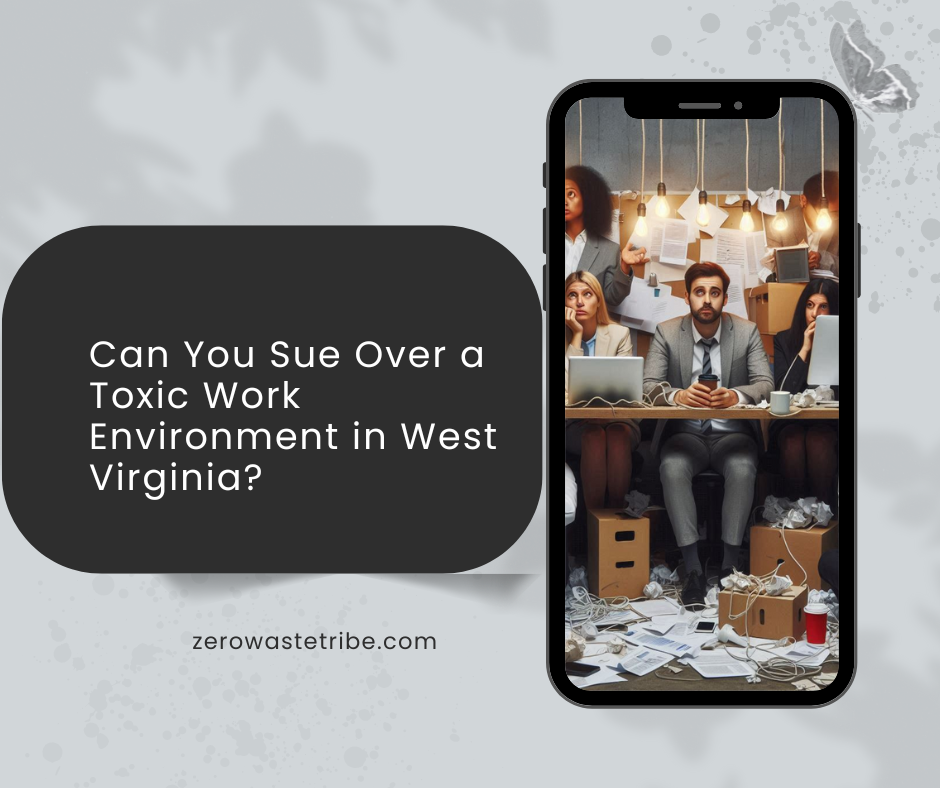As an employment lawyer who’s practiced in West Virginia for over a decade, I’ve seen firsthand how a toxic work environment can devastate someone’s career, mental health, and overall well-being. If you’re facing hostility at work in the Mountain State, you’re probably wondering about your legal options. Let’s break down exactly when you can sue for a toxic workplace in West Virginia, and what steps you need to take to protect your rights.

What Qualifies as a Toxic Work Environment in West Virginia?
Here’s something crucial that many people don’t realize: not all unpleasant work environments are legally “toxic.” According to the West Virginia Human Rights Act, specific criteria must be met before workplace conditions become legally actionable.
Legal Standards for a Hostile Work Environment
Based on West Virginia Code §5-11-9, a toxic work environment claim must demonstrate:
- Severe or pervasive harassment
- Based on a protected characteristic
- That affects work performance
- Where the employer knew or should have known about the situation
Let’s examine each element in detail.
Protected Characteristics Under West Virginia Law
The law doesn’t protect against general meanness or poor management. According to the West Virginia Supreme Court, harassment must be based on:
- Race or color
- Sex/gender
- Age (40 or older)
- Disability
- Religion
- National origin
- Pregnancy
- Military status
- Genetic information
Common Types of Workplace Harassment
From my experience handling these cases, here are the most frequent toxic workplace scenarios in West Virginia:
| Type of Harassment | Examples | Frequency of Claims* |
|---|---|---|
| Sexual Harassment | Unwanted advances, explicit comments | 35% |
| Racial Discrimination | Slurs, unfair treatment | 28% |
| Age Discrimination | Forced retirement, age-based comments | 22% |
| Disability Harassment | Mocking disabilities, denial of accommodations | 15% |
*Based on 2023 EEOC statistics for West Virginia
Steps to Take Before Filing a Lawsuit
1. Document Everything
Before considering legal action, create a detailed record:
- Save emails, texts, and written communications
- Keep a daily journal of incidents
- Take photos or screenshots when relevant
- Record names of witnesses
- Document dates, times, and locations
2. Follow Internal Procedures
According to West Virginia employment law, you typically must:
- Report harassment to HR or management
- Follow company grievance procedures
- Give the employer reasonable time to address the issue
- Keep copies of all complaints and responses
3. File Administrative Complaints
Before suing, you usually must file with either:
Important deadlines:
- 180 days for state claims
- 300 days for federal claims
Legal Options in West Virginia
State vs. Federal Claims
You may have options under both state and federal law:
| West Virginia Law | Federal Law |
|---|---|
| Covers employers with 12+ employees | Covers employers with 15+ employees |
| 180-day filing deadline | 300-day filing deadline |
| Can file directly in state court | Must get EEOC right-to-sue letter |
| Often faster resolution | Typically longer process |
| May have better state-specific protections | Stronger precedents in some areas |
Types of Available Damages
Successfully proving a toxic work environment case could result in:
- Economic Damages:
- Lost wages
- Lost benefits
- Medical expenses
- Future earnings loss
- Non-Economic Damages:
- Emotional distress
- Pain and suffering
- Reputation damage
- Loss of enjoyment of life
Building a Strong Case
Evidence You’ll Need
Based on successful cases I’ve handled, crucial evidence includes:
- Direct Evidence:
- Emails, texts, recordings
- Witness statements
- Performance reviews
- Medical records
- Circumstantial Evidence:
- Pattern of behavior
- Statistical data
- Comparative treatment
- Timeline of events
Common Defense Tactics
Be prepared for employers to argue:
- The behavior wasn’t severe enough
- You didn’t report properly
- They took reasonable corrective action
- The treatment wasn’t based on a protected characteristic
Practical Considerations
Timeline and Costs
Understanding the practical aspects is crucial:
- Most cases take 12-18 months
- Legal fees can range from $10,000 to $50,000+
- Contingency fee arrangements are common
- Settlement is more likely than trial
Alternative Options
Before suing, consider:
- Negotiated Resolution:
- Internal transfer
- Severance package
- Mediation
- Policy changes
- Administrative Remedies:
- EEOC complaint
- State agency investigation
- Union grievance
- Workers’ compensation (if applicable)
When to Contact an Attorney
Consider legal representation if:
- The harassment is ongoing
- You’ve documented incidents
- Internal complaints haven’t helped
- You’re facing retaliation
- You’ve missed work due to stress
- You have witnesses willing to testify
Moving Forward
If you’re experiencing a toxic work environment in West Virginia:
- Start documenting immediately
- Report through proper channels
- Preserve all evidence
- Know your deadlines
- Consider consulting an employment lawyer
Remember, the goal is not just compensation but creating safer workplaces for everyone in West Virginia.
Disclaimer: This article provides general information about toxic workplace laws in West Virginia and should not be considered legal advice. Employment laws can be complex and change frequently. For advice about your specific situation, please consult with a qualified employment attorney licensed in West Virginia. The information presented is current as of November 2024 but may change due to new legislation or court decisions.








